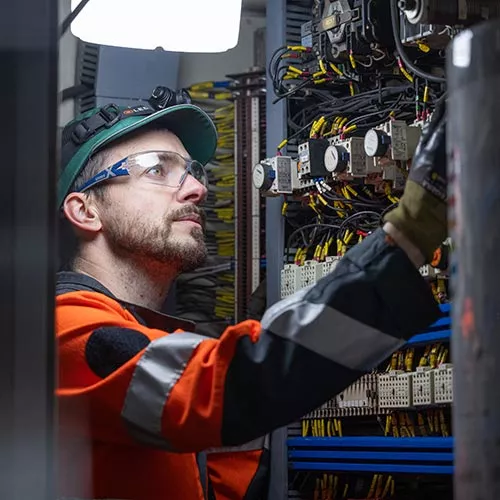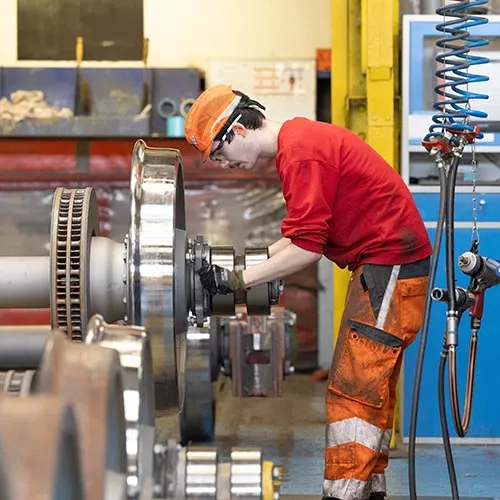What does it mean to be a railway worker in 2025?
In France, the term “cheminot” (railway worker) is three-in-one—a household word, a status, and a profession. Not only does it have an unusual etymology, it has several different meanings depending on context. Learn more here.

The legacy of a special status
The “cheminot” status—a unique classification for French railway workers—was first introduced in 1920. Initially it bundled together an array of social rights, guarantees and benefits won by workers over the years to compensate for the demanding, arduous work involved in maintaining rail infrastructure and driving trains. In addition to train drivers, this special status was extended to conductors, managerial staff, non-managerial staff, and office workers.
Over time, the system adapted to changing circumstances, and was officially discontinued in 2020 when the present SNCF Group was created. Today all new recruits are employed under private law contracts, aligned with the broader private-sector workforce. But although the legal framework has changed, we still use the words “cheminot” and “cheminote” (railwayman and railwaywoman) in French. They’ve become ingrained in our culture and society, with a significance that transcends the original legal definition.
Etymology—tracing the roots of “cheminot”
The French word “cheminot” derives from “chemin” meaning “road” or “way”. It initially referred to wandering workers who traveled country roads and byways in search of employment, and was sometimes written “chemineau”. Over time, the term shifted to denote railway employees, reflecting their journeys (“cheminer”) along the tracks.

The faces of the railway
In France, SNCF railway workers are people you see every day, and often spark discussions and debates. While many appreciate the tough jobs they do, they are frequently criticized for being “overpaid”, “privileged”, or having “cushy jobs”. Yet these stereotypes fail to capture the reality: the demanding nature of their work and working conditions are often misunderstood and misrepresented.

Are railway workers “privileged”?
SNCF aims to attract and retain new talent. Like most companies, this means offering benefits to support employees in their daily and family lives. Benefits that include:
- mutual health insurance
- discounted train tickets
- housing and childcare benefits
So, there are two answers: yes, railway workers do enjoy special benefits, but these are comparable to what many companies provide based on their size and operations. And no, they are not “privileged”—far from it.

What does it mean to be a railway worker in 2025?
Today the term “cheminot” or railway worker no longer refers to a special status or exclusive profession. Most SNCF Group employees now work in a highly competitive market that includes freight, high-speed rail, regional transport and more. Their historical special status is gone.
In 2025, being a railway worker means being part of a leading mobility company and embracing values that include commitment, service, efficiency and openness. Above all, it’s about contributing to SNCF’s corporate purpose—working to build a dynamic, caring, sustainable society.
Share the article